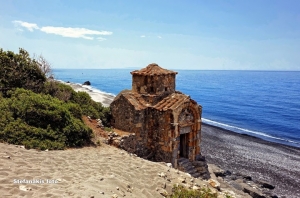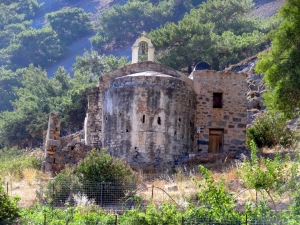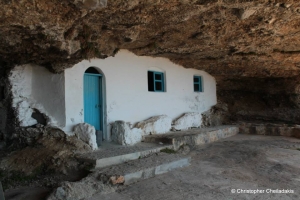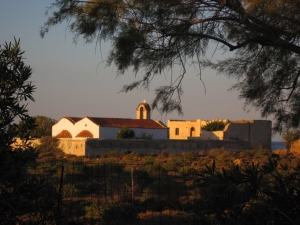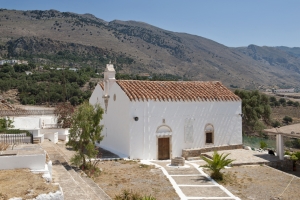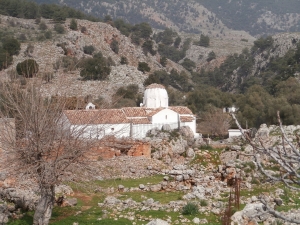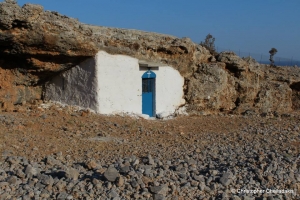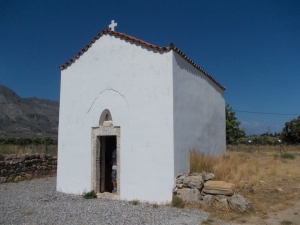Saint Paul is a very old Byzantine church that was built at the place Selouda. The church is on the spot where Saint Paul reportedly baptized people on his way to Rome. It is a very picturesque small church, built on the beach using stones from the beach itself. This is why it is not easy to see the church from far.
One of the most important Byzantine monuments is located in the gorge of Samaria, at the site of a former a temple of town Tarra (1st century AD). The initial church was a three-nave basilica and today what we see is the Byzantine church that was built in place of the initial.
East of Sfakia, on the beach of Ammoudi, above Ammoudi we meet the church of Agios Haralambos. This is a typical cavernous chapel of the coasts and inland of Sfakia province. It is quite spacious because it is built in a relatively large cave. The location of the cave can be accessed via a short path that starts from the beach, but there is also a road that reaches the place.
Among the greenhouses of Fragokastelo plain and above Orthi Ammos beach we meet the abandoned small monastery of Agios Haralambos. It is said that there settled in 1821 the monks Gregory and Magdalene, although it is believed that the monastery is much older.
The monastery of Panagia Thymiani is located near Sfakia at position Thyme Armi and is one of the most historic sites in Crete. Here on May 29, 1821, the chieftains of Crete preached revolution against the Ottoman Empire. Therefore, the monastery is also called Agia Lavra of Crete (Agia Lavra is a monastery in Peloponnese from where the great Greek Revolution of 1821 started, leading to the liberation of Greece).
The impressive church of the Archangel Michael (celebr. November 8) on the edge of the canyon of Aradena is a cruciform church with a dome and is dated back from the 14th century, built on a former basilica of the 5-6th century that belonged to the city Aradin. It bears frescoes of the 14th centur and a mark with the date 1546.
It is located very close to the road and south of the village in a remote place with many caves. The small church is at the starting point of a small ravine that ends at a steep beach. The colors on the walls are white with some touches of blue in some places reminding of a Cycladic island.
The Venetian church of Agios Nikitas (13th century) is located approximately 300m NE of Fragokastelo castle, on the ruins of an Early Christian Basilica of the 6th century. The walls bear frescoes from the Venetian era.





